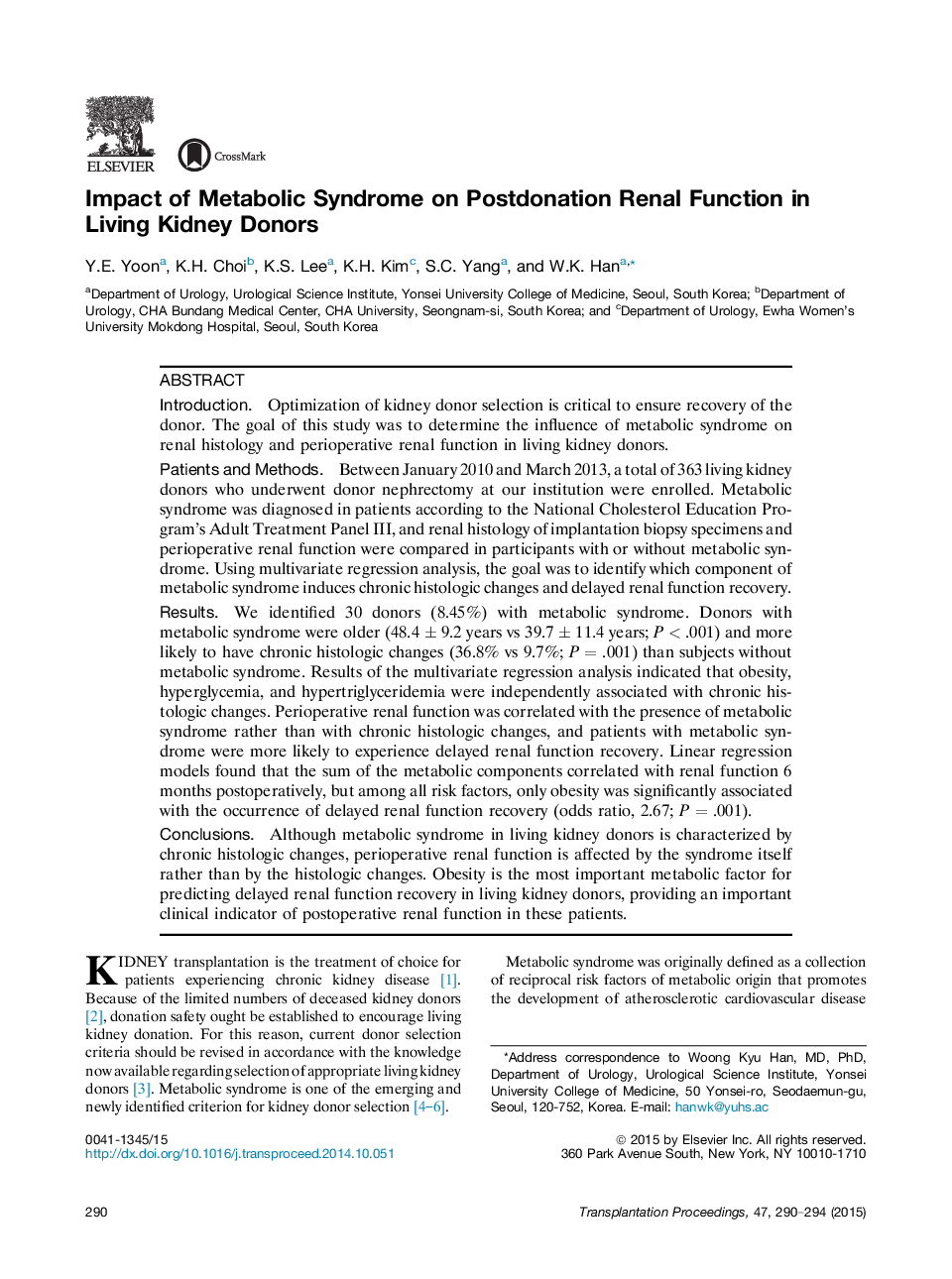| کد مقاله | کد نشریه | سال انتشار | مقاله انگلیسی | نسخه تمام متن |
|---|---|---|---|---|
| 4257597 | 1284547 | 2015 | 5 صفحه PDF | دانلود رایگان |
• Donors with metabolic syndrome were more likely to have chronic histologic changes.
• The sum of metabolic components correlated with postdonation renal function.
• Obesity was the only independent component to affect postdonation renal function.
IntroductionOptimization of kidney donor selection is critical to ensure recovery of the donor. The goal of this study was to determine the influence of metabolic syndrome on renal histology and perioperative renal function in living kidney donors.Patients and MethodsBetween January 2010 and March 2013, a total of 363 living kidney donors who underwent donor nephrectomy at our institution were enrolled. Metabolic syndrome was diagnosed in patients according to the National Cholesterol Education Program's Adult Treatment Panel III, and renal histology of implantation biopsy specimens and perioperative renal function were compared in participants with or without metabolic syndrome. Using multivariate regression analysis, the goal was to identify which component of metabolic syndrome induces chronic histologic changes and delayed renal function recovery.ResultsWe identified 30 donors (8.45%) with metabolic syndrome. Donors with metabolic syndrome were older (48.4 ± 9.2 years vs 39.7 ± 11.4 years; P < .001) and more likely to have chronic histologic changes (36.8% vs 9.7%; P = .001) than subjects without metabolic syndrome. Results of the multivariate regression analysis indicated that obesity, hyperglycemia, and hypertriglyceridemia were independently associated with chronic histologic changes. Perioperative renal function was correlated with the presence of metabolic syndrome rather than with chronic histologic changes, and patients with metabolic syndrome were more likely to experience delayed renal function recovery. Linear regression models found that the sum of the metabolic components correlated with renal function 6 months postoperatively, but among all risk factors, only obesity was significantly associated with the occurrence of delayed renal function recovery (odds ratio, 2.67; P = .001).ConclusionsAlthough metabolic syndrome in living kidney donors is characterized by chronic histologic changes, perioperative renal function is affected by the syndrome itself rather than by the histologic changes. Obesity is the most important metabolic factor for predicting delayed renal function recovery in living kidney donors, providing an important clinical indicator of postoperative renal function in these patients.
Journal: Transplantation Proceedings - Volume 47, Issue 2, March 2015, Pages 290–294
